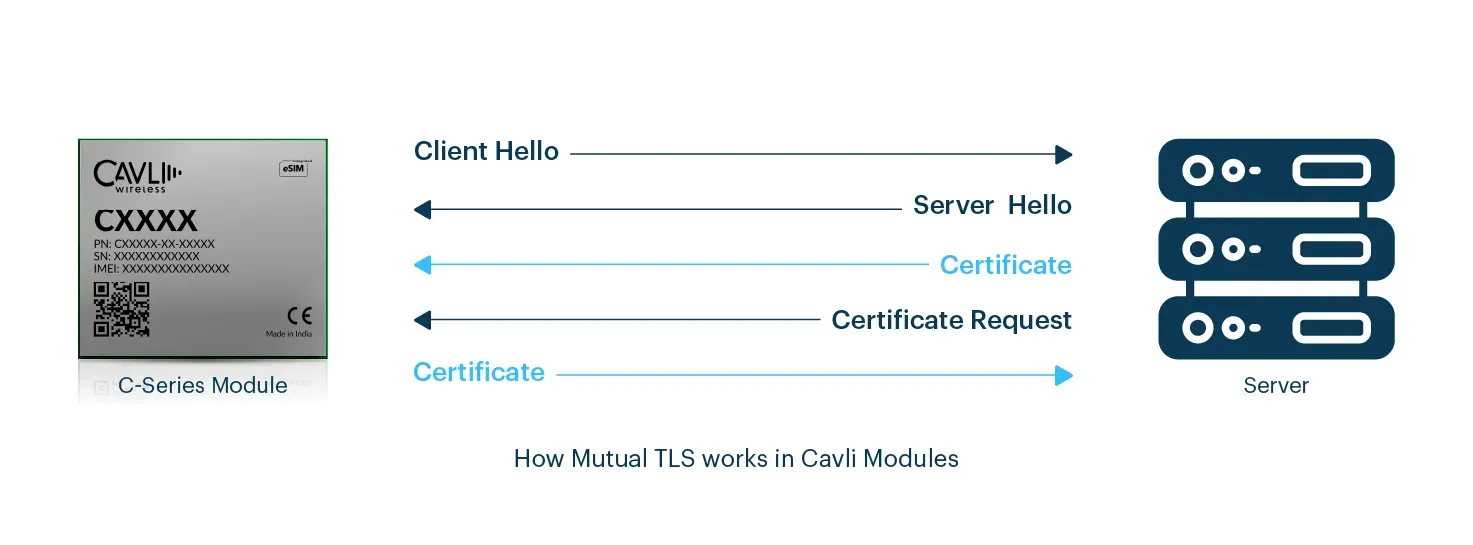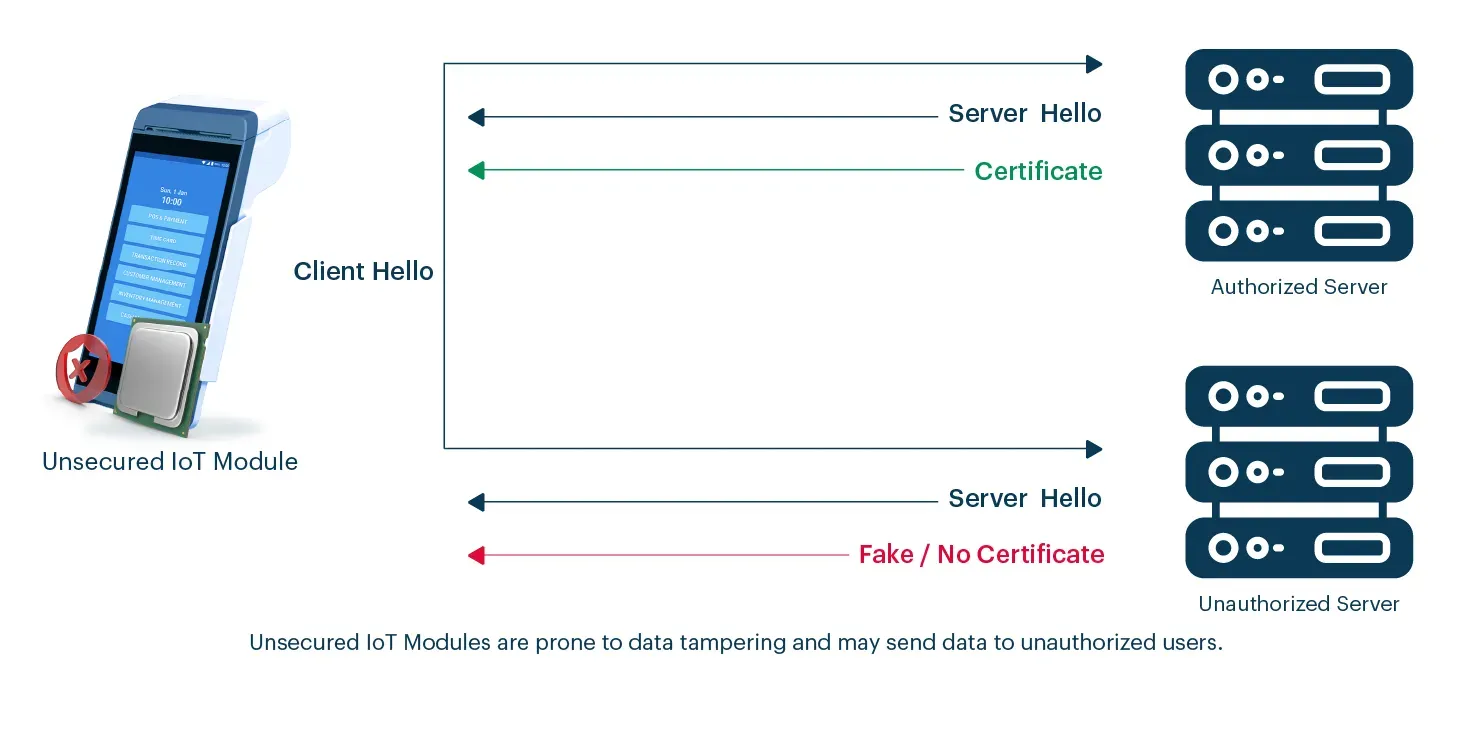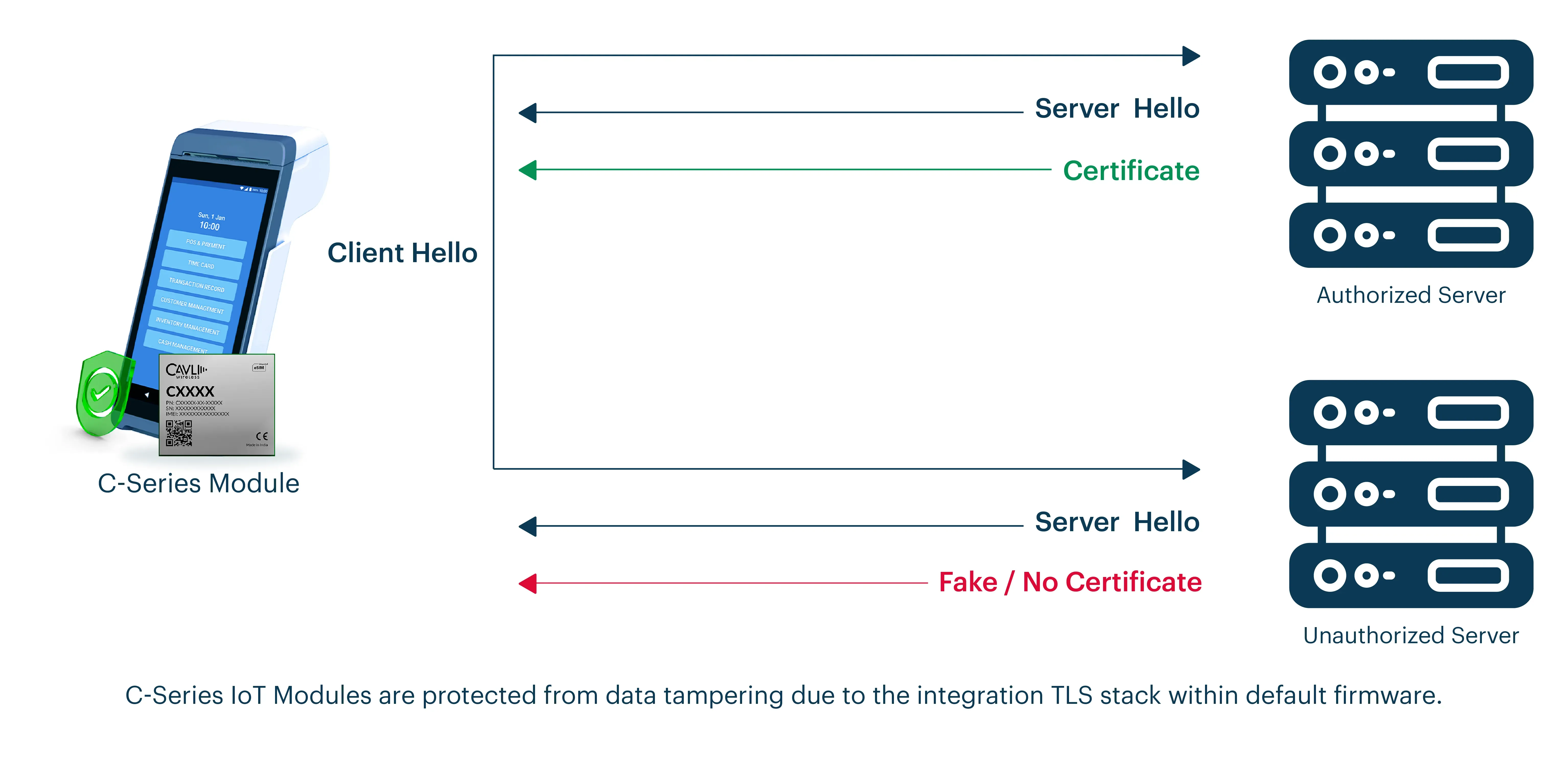In today's rapidly evolving connected automotive ecosystem, ensuring robust security measures for both OEMs and end-users is paramount. As connected vehicles, telematics systems, infotainment, and ADAS applications increasingly rely on IoT connectivity, the potential for unauthorized access, data tampering, and privacy breaches rises significantly. OEMs are under increasing pressure to safeguard sensitive data as part of their product development while maintaining high-performance standards. This is where Cavli's advanced security features for its IoT modules come in, offering solutions tailored for secure connected vehicle applications.
What Are the Security Challenges in Connected Automotive Solutions?
Automotive OEMs face a complex challenge in ensuring the integrity and confidentiality of data shared across their connected solutions. Whether it's tracking vehicle health through telematics, enabling in-vehicle infotainment systems, or managing driver and vehicle performance data in real time, security vulnerabilities can have serious consequences. Data from these systems, when intercepted or manipulated, can lead to privacy violations, regulatory fines, and significant safety risks. For OEMs, the challenge lies in adopting connectivity solutions that offer high security without compromising performance or driving up costs.
Why Choose Cavli’s IoT Modules for Secure Automotive Solutions?
Cavli's suite of IoT modules, including the C10QM, C20QM, CQS290, CQS291, and CQS315, are designed to offer the highest levels of security to meet the rigorous demands of connected automotive solutions. Each module integrates an array of industry-leading security features that protect sensitive information from unauthorized access or tampering, ensuring compliance with standards like GDPR and CCPA.
How Does Software-Based Encryption Secure IoT Data?
Cavli’s modules implement robust software-based encryption, which encrypts the data transmitted from devices to servers. This ensures that any information shared over cellular networks is protected from unauthorized access. The use of password-based encryption safeguards communication channels, ensuring data cannot be transmitted without user consent or authorization. This is critical for applications like telematics and in-vehicle payment systems, where data security is paramount.
What Role Does TLS v1.2 Encryption Play in Automotive IoT?
C-Series IoT modules leverage TLS (Transport Layer Security) protocol, specifically version 1.2, for encrypting communication channels. TLS encryption guarantees data integrity and confidentiality by providing secure transmission paths for connected automotive solutions. Advanced cryptographic algorithms, such as AES and SHA, encrypt data during transmission, preventing potential eavesdropping or manipulation. The integration of TLS provides an additional layer of protection, making it harder for cybercriminals to exploit vulnerabilities within the carrier network.

How Do Cavli’s IoT Modules Benefit OEMs in Automotive Development?
For OEMs looking to develop connected automotive solutions, Cavli's IoT modules with robust security features offer a substantial advantage. OEMs can leverage these advanced security protocols to build solutions that protect both vehicle data and user privacy while adhering to regulatory requirements such as GDPR or CCPA.
Take, for example, a connected vehicle system that integrates a POS (Point of Sale) solution within the vehicle's infotainment system. The solution needs to securely handle payment transactions and protect sensitive financial data from unauthorized access. With Cavli’s modules featuring AES and SHA encryption, these data streams are secured end-to-end. The use of TLS ensures that even if there’s a vulnerability in the carrier network, the data remains protected, preventing financial fraud and privacy breaches.
For OEMs looking to deploy secure in-vehicle POS systems, Cavli’s modules make the development process simpler. They provide a secure communications framework, reducing the complexity of integrating third-party security solutions. This makes it easier for OEMs to deploy secure connected solutions without having to build complex security infrastructure from scratch. Additionally, the modules’ Linux OS or variant provides flexibility for developing custom software, thereby optimizing security features to meet specific use case needs.
Consider an OEM developing a telematics solution for fleet management. The fleet management system requires real-time monitoring of vehicle health, location, speed, and driver behavior. With the integrated encryption features, Cavli’s IoT modules ensure that all vehicle data transmitted over the cellular network is securely encrypted and tamper-proof. OEMs can integrate these modules into their connected vehicles with confidence, knowing that data protection is handled efficiently.

How Do End Users Benefit from Cavli’s Secure IoT Modules?
The benefit of Cavli’s IoT modules with advanced security features extends beyond OEMs. End users, such as drivers or fleet managers, can experience enhanced security, ensuring that their private data is never exposed to unauthorized entities. This trust in secure connected systems leads to an improved user experience, where consumers feel safe sharing data with their vehicles, especially in cases involving sensitive information such as personal driver behavior or location tracking.
For example, in a connected car system, data from the vehicle's infotainment system, including location, speed, and driving habits, is shared with cloud-based services for analysis. Without TLS encryption, these data points could be intercepted or manipulated during transmission. With Cavli’s advanced security features in place, the data is encrypted before transmission, ensuring that end users’ private information remains secure. This leads to a better, safer, and more trusted experience for the end user.
For a driver using a smart navigation system powered by Cavli's modules, the use of TLS encryption ensures that their location data remains private, even when communicating with the cloud for real-time traffic updates. Additionally, the inclusion of AES and SHA algorithms ensures that their driving behavior and other personal data are transmitted securely, preventing unauthorized access or tampering. For end users, this means the assurance that their privacy is maintained, while also benefiting from smart, connected vehicle solutions.

What’s Next for Secure Connected Automotive Solutions?
As the connected automotive ecosystem continues to evolve, security will remain a cornerstone of its success. With growing concerns over data breaches, fraud, and privacy violations, Cavli's IoT modules offer OEMs and end users the peace of mind they need. The integration of software-based encryption, TLS v1.2, and advanced cipher suites ensures that sensitive vehicle and user data is always protected.
By adopting Cavli's secure modules, OEMs can innovate confidently, knowing their connected automotive solutions are built on a solid security foundation. Meanwhile, end users can experience the benefits of secure, seamless connectivity that enhances their driving experience while safeguarding their data. With these advanced security features, Cavli is enabling a smarter, safer, and more connected future for the automotive industry.
Conclusion: Secure Connectivity for the Future of Automotive IoT
The implementation of Cavli’s IoT modules with integrated security protocols makes them an ideal choice for connected automotive solutions. From real-time diagnostics and infotainment to secure in-vehicle payment systems, Cavli’s security-first design ensures OEMs and end users alike benefit from robust protection against data breaches and cyber threats. As the automotive industry continues to embrace the benefits of IoT, Cavli is at the forefront, offering secure, scalable, and high-performance connectivity solutions to power the vehicles of tomorrow. Contact Cavli today to learn how our C-Series modules can enhance your connected automotive solutions.

